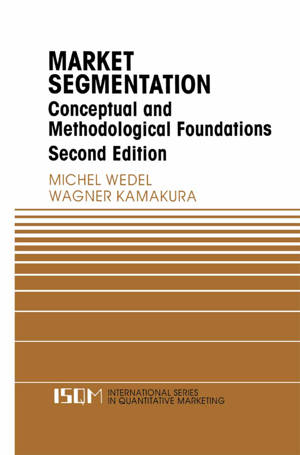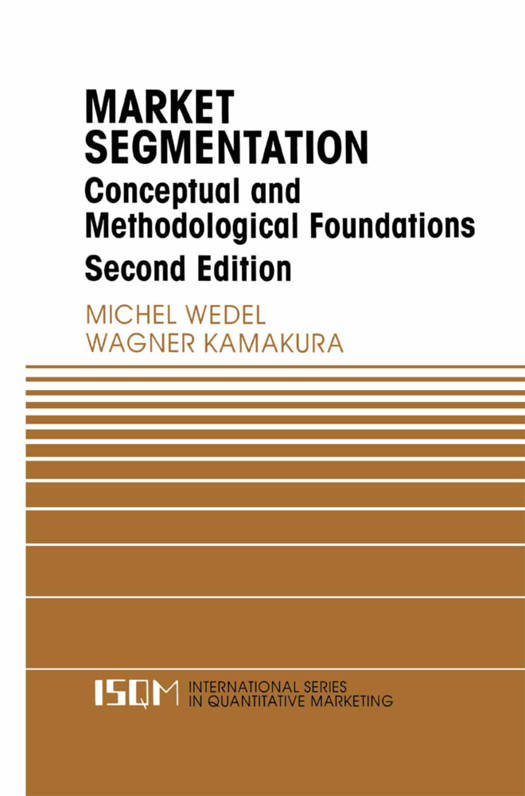
- Retrait gratuit dans votre magasin Club
- 7.000.000 titres dans notre catalogue
- Payer en toute sécurité
- Toujours un magasin près de chez vous
- Retrait gratuit dans votre magasin Club
- 7.000.0000 titres dans notre catalogue
- Payer en toute sécurité
- Toujours un magasin près de chez vous
251,45 €
+ 502 points
Format
Description
Modern marketing techniques in industrialized countries cannot be implemented without segmentation of the potential market. Goods are no longer produced and sold without a significant consideration of customer needs combined with a recognition that these needs are heterogeneous. Since first emerging in the late 1950s, the concept of segmentation has been one of the most researched topics in the marketing literature. Segmentation has become a central topic to both the theory and practice of marketing, particularly in the recent development of finite mixture models to better identify market segments.
This second edition of Market Segmentation updates and extends the integrated examination of segmentation theory and methodology begun in the first edition. A chapter on mixture model analysis of paired comparison data has been added, together with a new chapter on the pros and cons of the mixture model. The book starts with a framework for considering the various bases and methods available for conducting segmentation studies. The second section contains a more detailed discussion of the methodology for market segmentation, from traditional clustering algorithms to more recent developments in finite mixtures and latent class models. Three types of finite mixture models are discussed in this second section: simple mixtures, mixtures of regressions and mixtures of unfolding models. The third main section is devoted to special topics in market segmentation such as joint segmentation, segmentation using tailored interviewing and segmentation with structural equation models. The fourth part covers four major approaches to applied market segmentation: geo-demographic, lifestyle, response-based, and conjoint analysis. The final concluding section discusses directions for further research.
This second edition of Market Segmentation updates and extends the integrated examination of segmentation theory and methodology begun in the first edition. A chapter on mixture model analysis of paired comparison data has been added, together with a new chapter on the pros and cons of the mixture model. The book starts with a framework for considering the various bases and methods available for conducting segmentation studies. The second section contains a more detailed discussion of the methodology for market segmentation, from traditional clustering algorithms to more recent developments in finite mixtures and latent class models. Three types of finite mixture models are discussed in this second section: simple mixtures, mixtures of regressions and mixtures of unfolding models. The third main section is devoted to special topics in market segmentation such as joint segmentation, segmentation using tailored interviewing and segmentation with structural equation models. The fourth part covers four major approaches to applied market segmentation: geo-demographic, lifestyle, response-based, and conjoint analysis. The final concluding section discusses directions for further research.
Spécifications
Parties prenantes
- Auteur(s) :
- Editeur:
Contenu
- Nombre de pages :
- 382
- Langue:
- Anglais
- Collection :
- Tome:
- n° 8
Caractéristiques
- EAN:
- 9781461371045
- Date de parution :
- 17-10-12
- Format:
- Livre broché
- Format numérique:
- Trade paperback (VS)
- Dimensions :
- 156 mm x 234 mm
- Poids :
- 566 g

Les avis
Nous publions uniquement les avis qui respectent les conditions requises. Consultez nos conditions pour les avis.






